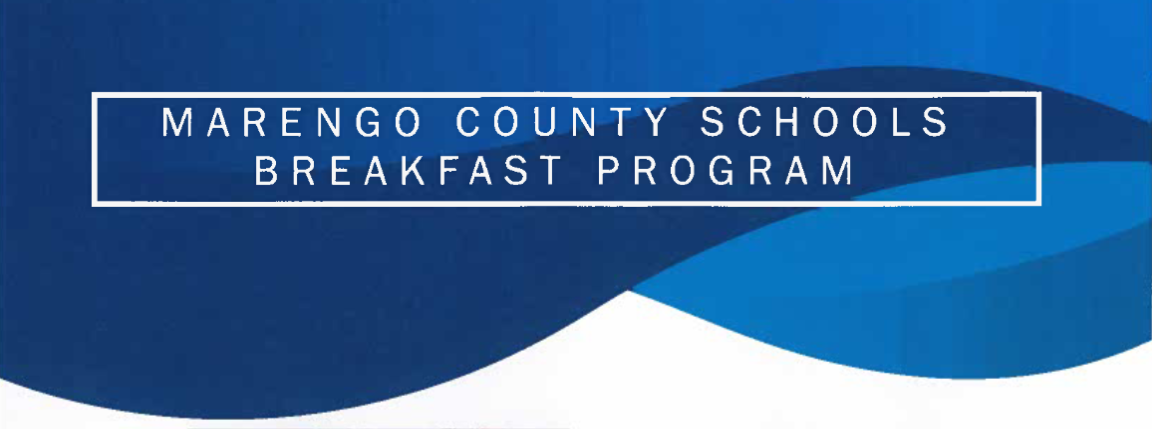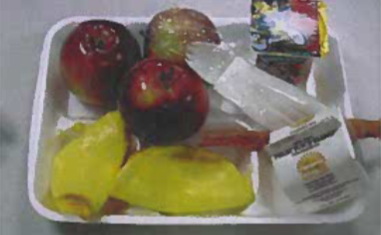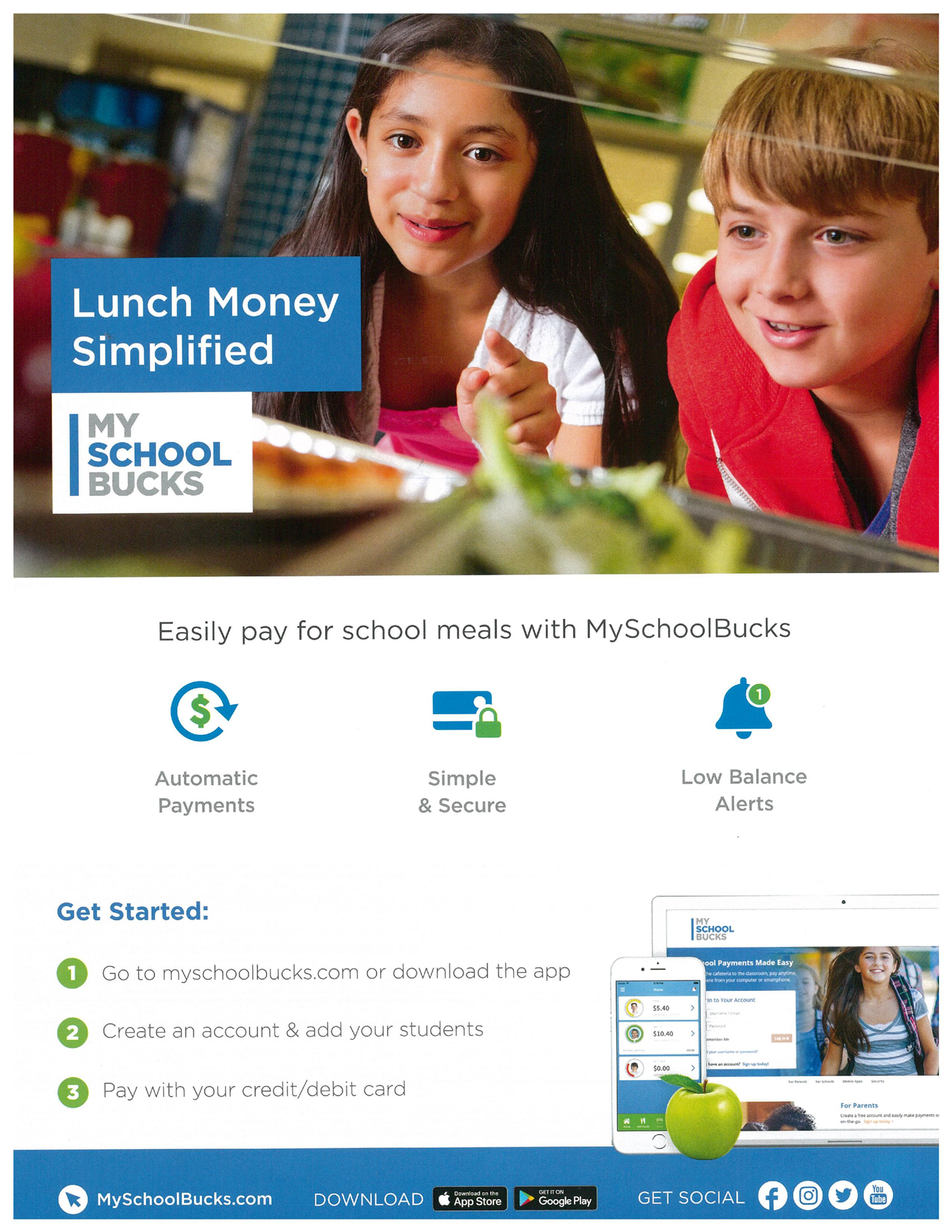Child Nutrition Program

Breakfast and Lunch Menus
COMMUNITY ELIGIBILITY PROVISION
All Students to Eat Free of Charge
Thanks to the USDA
Community Eligibility Provision (CEP), all students enrolled in Marengo County Schools
are eligible to receive a healthy breakfast and lunch at no charge. Under
this program, students, regardless of income status, receive one breakfast and
one lunch meal at no charge. Additional student meals, however, as well
as faculty and guest meals, will be charged at the normal price, and students will
continue to have the option to purchase a la carte items, as well.
The USDA CEP – Community Eligibility Provision is designed to improve access to free school meals in high poverty areas while reducing the administrative burden of collecting household applications. This provision allows schools that predominantly serve low-income children to offer free, nutritious school meals through the School Breakfast Program and the National School Lunch Program. In the absence of paper applications, eligibility for participation is determined by information from other programs such as the Supplemental Nutrition Assistance Program (SNAP) and the Temporary Assistance Program for Needy Families (TANF).
The goal of Marengo County Schools Child Nutrition Program is to influence students' eating habits by assisting them in making healthy eating choices. The School Breakfast Program (SBP) and the National School Lunch Program (NSLP) are designed to promote the health and well-being of children by providing nutritious and wholesome meals.
Our Child Nutrition Program assists our local schools in providing quality nutritious meals each day that prepare children for learning. For more information, contact the CNP Director, at (334) 295-2234.
"Better Nutrition for Healthy Bodies & Growing Minds"
Sweet Water High School
Sweet Water, Alabama
Child Nutrition Team
TBD, Manager
Gwendolyn Lockett, Asst. Manager
Dorris Richardson
Adrella Smith
Taffey Watkins
Kathy Henslee, CNP Bookkeeper
Marengo High School
Dixons Mills, Alabama
Child Nutrition Team
Teresa Lewis, Manager
Melody Bennett, Assistant Manager
Lesia Agee
Charlotte Young
Vanessa Brown, CNP Bookkeeper
Amelia Love Johnson High School Thomaston, Alabama
Child Nutrition Team
Wendy Hunter, Manager
Delores Lee
Gwendolyn Williams
Kandra Walker, CNP Bookkeeper


Start the Day off Right With A Well-Balanced Breakfast!
Research has shown that school breakfast improves student behavior, test scores, and attendance.
Marengo County Schools participate in the Community Eligibility Provision (CEP). This program allows all enrolled students in our schools to receive FREE breakfast (and lunch).
Breakfast is served daily.
Breakfast is the most important meal of the day.
Encourage your child to eat breakfast at school!

This institution is an equal opportunity provider.
Breakfast - $.30 cents
Lunch - $.40 cents
Breakfast - $2.00
Lunch - $2.75
Breakfast - $3.15
Lunch - $4.65
Breakfast - $3.50
Lunch - $5.75
Children need healthy meals to learn.
Marengo County Schools offers healthy meals every school day.
For the current school year, the Child Nutrition Program (CNP) of the Marengo County School District will continue to provide breakfast and lunch meals to all enrolled students at no charge through the USDA Community Eligibility Provision (CEP) program. In order to receive USDA reimbursement, Marengo County School District must follow the guidelines that require all meals must be accountable. All students will have a POS ID number (PIN#) that will be entered in the POS system at the time of service. This will identify the students and the meals served.
The Community Eligibility Provision (CEP) program does not require lunch applications. Therefore, all students will receive breakfast and lunch meals at no charge. The collection of meal applications are suspended. No further action is required of parents. The Marengo County School System will receive reimbursement for a complete reimbursable meal per student. Students will still have the option to purchase extra meals at a cost and A LA CARTE items at the food prices approved by the Marengo County Schools' Child Nutrition Program. Payments for these items can be made in the form of cash at the POS system or through an advance payment made through www.myschoolbucks.com. All extra purchases including A LA CARTE items must be paid for during the time of service. Adult Employees and Visitors must pay for their meals in advance or at the time of service. Absolutely no meal charges will be allowed.
Marengo County Schools uses cycle menus. The cycle menu is a series of menus planned to be used consecutively with some variations over a period of time.
The cycle menu may be rotated with appropriate changes on a quarterly or seasonal basis. They may be reviewed continuously to increase variety and eliminate unpopular dishes. Cycle meals save time and are easier to analyze thoroughly.
Advantages of the Cycle Menus
The principle advantages of a cycle menu are better meals, time savings, improved cost control, and more effective supervision.
While the cycle menu is in use, the menu planner can refine the menu and make changes, tailoring it to available supplies and incorporating seasonal fruits and vegetables and special school events. The cycle period can consist of as many weeks or months as practical.
Experience gained through actual preparation and service of the cycle menu points out shortcuts, better preparation techniques, proper timing of food preparation, the arrangement of food on the serving line, preferred serving sizes, and the most attractive arrangement of food on the trays.
The Marengo County Schools Child Nutrition Porgram is happy to accomodate students with special dietary needs and food allergies within our abilities. Students must provide written medical documentation from the treating physician in order to provide for this accomodation. This documentation must include, but is not limited to:
- A statement of what the allergy is
- What dietary changes from the traditional school meal are necessary
- What specific foods must be omitted or substituted and what dietary items can be used to replace them with
This documenation should be given to the school nurse. A copy should also be provided to the CNP Manager in the school cafeteria. Handwritten notes written by parents will not be accepted.
If you have any quesitn or concerns, please contact Tonya Wingfield, CNP Director, at 334-295-2234.
WELLNESS POLICY ON NUTRITION AND PHYSICAL ACTIVITY
MISSION STATEMENT
The mission of the Marengo County School Board of Education’s Wellness Policy is to provide each student with the opportunities and skills necessary to make nutritious food and physical activity choices for a life time. All staff is encouraged to serve as role models for healthy eating and physical activity.
POLICY OUTLINE
I. Nutrition Education
II. Physical Activity
III. Nutrition Guidelines for Food on Campus
IV. Other School Based Activities
V. Monitoring, Assessment and Policy Review
ADDENDUMS
A) Alabama Healthy Snack Standards
B) Alabama Department of Education Nutrition Policies
I.
Nutrition Education will involve sharing information with school
staff, students and families to positively impact students and their
health.
a) Nutrition education will include age appropriate objectives required in the Alabama Course of Study for Health Education.
b)
Local school faculties shall be adequately prepared and participate
annually in professional development activities provided by the local
school to deliver the nutrition education program as planned.
c)
Nutrition Education will be integrated into other areas of the
curriculum such as math, science, language arts, social studies, health,
physical education and Family and Consumer Science.
d) Students are encouraged to participate in the child nutrition program for breakfast and lunch.
e) Nutritional Information on school meals will be provided on request.
II.
Physical Activity will be integrated across the curricula and
throughout the school day. Students will be encouraged to balance food
intake and physical activity.
a) Physical Education will be provided for all students in accordance with the Code of Alabama.
b) Physical Education includes the instruction of individual
activities, as well as competitive and non-competitive team sports to
encourage like-long physical activity.
c) Time allotted for physical education activities will be consistent with state standards.
d) The Board encourages Physical Education course to be conducted
in an environment where students can learn, practice and be assessed on
developmentally appropriate skills and also recommends Student/Teacher
ratios reflect SDE guidelines as closely as possible.
e) Parent/Teacher organizations will be encouraged to promote and
provide information to families in order to help them incorporate
physical activity into their children’s lives.
III.
Nutrition Guidelines for all Foods on Campus will comply with current
USDA Dietary Guidelines and Alabama Department of Education Nutrition Policies.
a) Foods sold through the vending machines, cafeteria, fund, raisers, and school canteens will follow the Alabama’s Action for Healthy Kids Guidelines for Snack Foods and Alabama Department of Education Nutrition Policies.
b) Fund raisers during the school day must comply with the Alabama Action for Healthy Kids Guidelines and the SDE policy on the sale of competitive foods.
For all fundraisers not meeting these standards, principals must submit
an Alabama’s Implementation of USDA Smart Snacks in School and Exempt
Fundraiser Form to the Child Nutrition Director.
c)
Student reward initiatives will be regulated by the school principal.
This process must comply with the SDE policy on the sale of competitive
foods and must follow the Alabama Action for Healthy Kids Guidelines.
d)
Advertising of foods or beverages in the areas assessable to students
during the school day must reinforce the objectives of the educational
and nutrition environment goals of the school and be consistent with
established nutrition environment standards.
e)
Students many bring their breakfast or lunch from home to consume in
the cafeteria. Parents are encouraged to pack healthy nutritious
breakfasts and lunches.
IV.
Other School-Based Activities. The system recognizes the importance of
creating a School environment that sends consistent wellness messages.
a) Concession stands open for extra-curricular activities after
the school day ends, will not be required to comply with snack guidelines.
b) Fund raisers after the school day ends will not be required to
comply with these guidelines according to the Alabama Department of
Education Nutrition Policies dated July 2005.
c} Guidelines for class parties/special snacks will be at the
discretion of the school principal. Healthy snacks are encouraged and
should be recommended. All class parties must be after meal time.
d) Schools are encouraged to comply with USDA standards for meals
when taking off campus field trips but are not required to comply.
e) Health and nutrition efforts will be coordinated through combined
efforts of system administrators, teachers, nurses, and child nutrition
workers.
f) The system promotes coordinated efforts with local agencies such
as the Marengo County Health Department and insurance providers to
offer wellness checkups for faculty and staff within the school
setting. Additional staff wellness activities may be implemented at the
local level.
g) System leaders, teachers, parents, and community members are
encouraged to take advantage of additional resources to support good
nutrition and physical activity.
I. Monitoring, Assessment, and Policy Review
Monitoring:
The superintendent or designee will ensure compliance with established
district-wide nutrition and physical activity wellness policies. The
principal will ensure compliance in his/her school and will report on
the school’s compliance to the superintendent or designee.
School Food Service Staff: School food service staff at the local district level, will ensure compliance with nutrition policies within school food service areas and will report findings to the local school principal. In addition, local school principal will report findings to the superintendent or designee.
Policy
Review: An annual revision may be made as a result of continued
monitoring of the Wellness Policy. Triennial Assessments must be
conducted to determine:
1. Compliance with the wellness policy
2. How the wellness policy compares to model wellness policies; and
3. Progress made in attaining the goals of the wellness policy
Assessment: Assessment will be conducted annually to review compliance, assess compliance, assess progress, and determine areas in need of adjustment.
In accordance with Federal civil rights law and U.S. Department of Agriculture (USDA) civil rights regulations and policies, the USDA, its Agencies, offices, and employees, and institutions participating in or administering USDA programs are prohibited from discriminating based on race, color, national origin, sex, disability, age, or reprisal or retaliation for prior civil rights activity in any program or activity conducted or funded by USDA.
Persons with disabilities who require alternative means of communication for program information (e.g. Braille, large print, audiotape, American Sign Language, etc.), should contact the Agency (State or local) where they applied for benefits. Individuals who are deaf, hard of hearing or have speech disabilities may contact USDA through the Federal Relay Service at (800) 877-8339. Additionally, program information may be made available in languages other than English.
To file a program complaint of discrimination, complete the USDA Program Discrimination Complaint Form, (AD-3027) found online at:
http://www.ascr.usda.gov/complaint_filing_cust.html, and at any USDA office, or write a letter addressed to USDA and provide in the letter all of the information requested in the form. To request a copy of the complaint form, call (866) 632-9992.
Submit your completed form or letter to USDA by:
(1) Mail:
U.S. Department of Agriculture
Office of the Assistant Secretary for Civil Rights
1400 Independence Avenue, SW
Washington, D.C. 20250-9410
(2) Fax:
(202) 690-7442; or
(3) Email:
program.intake@usda.gov
This institution is an equal opportunity provider.


